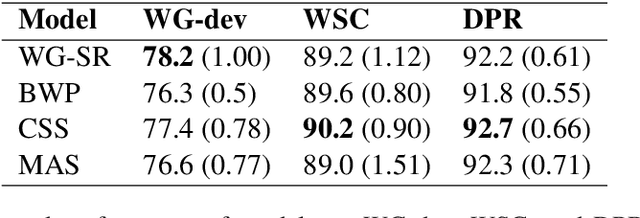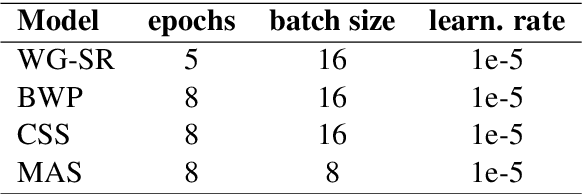Does the Objective Matter? Comparing Training Objectives for Pronoun Resolution
Paper and Code
Oct 06, 2020


Hard cases of pronoun resolution have been used as a long-standing benchmark for commonsense reasoning. In the recent literature, pre-trained language models have been used to obtain state-of-the-art results on pronoun resolution. Overall, four categories of training and evaluation objectives have been introduced. The variety of training datasets and pre-trained language models used in these works makes it unclear whether the choice of training objective is critical. In this work, we make a fair comparison of the performance and seed-wise stability of four models that represent the four categories of objectives. Our experiments show that the objective of sequence ranking performs the best in-domain, while the objective of semantic similarity between candidates and pronoun performs the best out-of-domain. We also observe a seed-wise instability of the model using sequence ranking, which is not the case when the other objectives are used.
 Add to Chrome
Add to Chrome Add to Firefox
Add to Firefox Add to Edge
Add to Edge